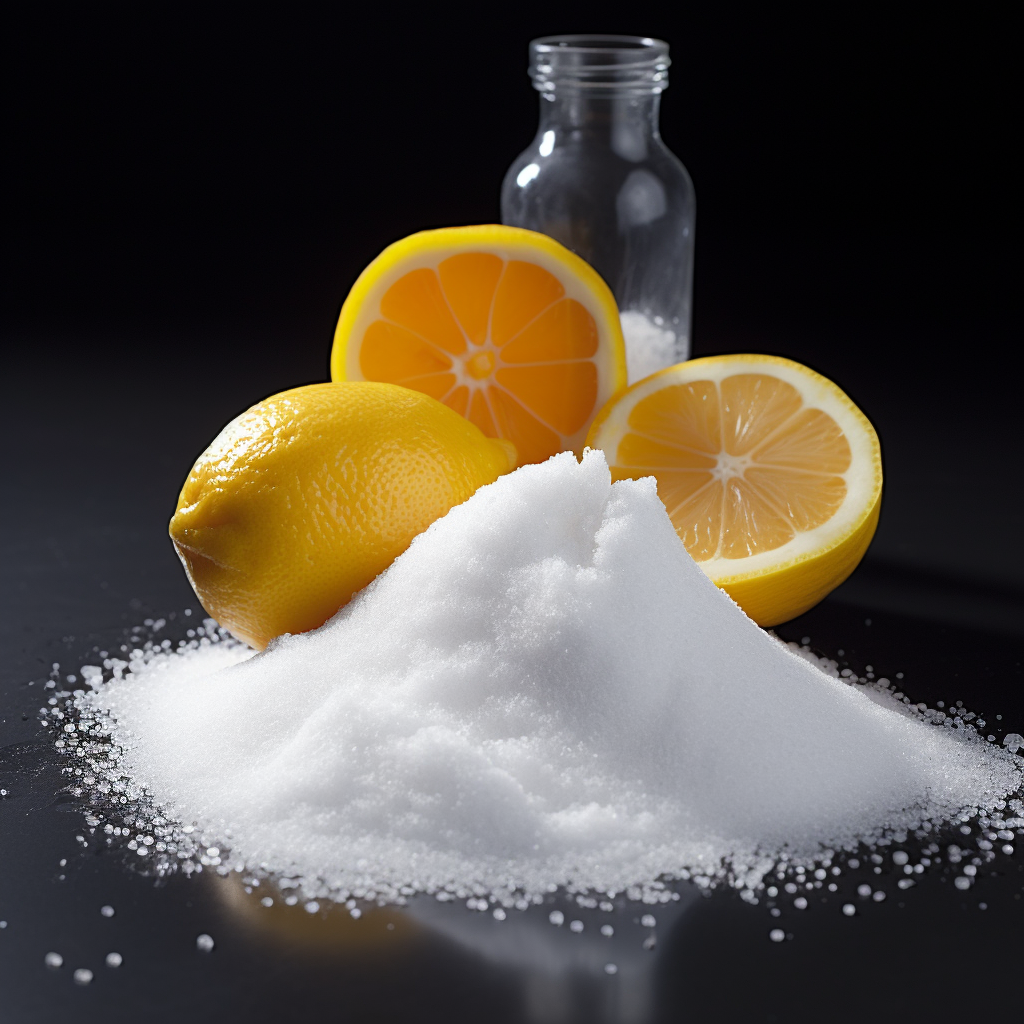Your cart is currently empty!
The Hidden Dangers of Commercial Citric Acid: Promoting Non-Toxic Living

Intro
In today’s fast-paced world, convenience often trumps health considerations, especially when it comes to food choices.
One common additive found in many processed foods, citric acid, might seem innocuous at first glance.
After all, citric acid occurs naturally in citrus fruits and is even produced by our own bodies as part of the Krebs cycle.
However, the commercial production and widespread use of citric acid in modern food processing raise some serious concerns about its impact on our health and well-being.
What is Commercial Citric Acid?

Commercial citric acid is typically derived from the fermentation of sugar by Aspergillus niger, a fungus.
While this process yields a cheap and abundant source of citric acid, it also introduces potential contaminants and by-products that may not be present in naturally occurring citric acid.
The Pervasiveness of Citric Acid in Modern Foods
Walk down the aisles of any grocery store, and you’ll find citric acid listed on the ingredient labels of a plethora of products, ranging from beverages and candies to canned fruits and vegetables.
Its use extends beyond just flavor enhancement; citric acid also serves as a preservative, pH adjuster, and emulsifying agent in many processed foods.
The Dark Side of Commercial Citric Acid
Despite its widespread use, commercial citric acid poses several risks to human health:
- Potential Allergen: While rare, allergic reactions to citric acid have been reported. Individuals with citrus allergies or sensitivities may experience adverse reactions when consuming foods containing commercial citric acid.
- Dental Erosion: Citric acid is highly acidic and can erode tooth enamel over time, leading to dental issues such as cavities and tooth sensitivity.
- Digestive Discomfort: Excessive consumption of citric acid, particularly in its synthetic form, may contribute to digestive issues such as acid reflux and stomach upset in some individuals.
- Contribution to Chronic Health Conditions: Some studies suggest that high intake of citric acid, especially in processed foods, may exacerbate chronic health conditions such as kidney stones and osteoporosis.
Promoting Non-Toxic Living
In light of these concerns, adopting a lifestyle centered around non-toxic living becomes increasingly important.
Here are some steps you can take to minimize your exposure to commercial citric acid and other harmful additives:
- Read Labels: Become a savvy consumer by carefully reading ingredient labels. Opt for products that contain natural alternatives to citric acid or, better yet, prepare meals using whole, unprocessed ingredients.
- Choose Organic: Organic products are less likely to contain synthetic additives like commercial citric acid. Whenever possible, choose organic options to reduce your exposure to potentially harmful chemicals. However, the most important part is to read the labels. Never blindly trust a product even if they are promoting no additives or preservatives.
- DIY Approach: Get creative in the kitchen and experiment with homemade versions of your favorite foods and beverages. By making items from scratch, you can control the ingredients and avoid unnecessary additives. Check out our homemade soda recipe!
- Educate Others: Share your knowledge about the risks associated with commercial citric acid and other additives with friends and family. Together, we can raise awareness and advocate for healthier food choices.

Conclusion
While commercial citric acid might seem like a harmless ingredient, its widespread use in modern food processing raises red flags about its potential impact on our health.
By prioritizing non-toxic living and being mindful of the foods we consume, we can take proactive steps towards promoting a healthier and more sustainable lifestyle for ourselves and future generations.
by
Tags:
Search
Proudly powered by WordPress



